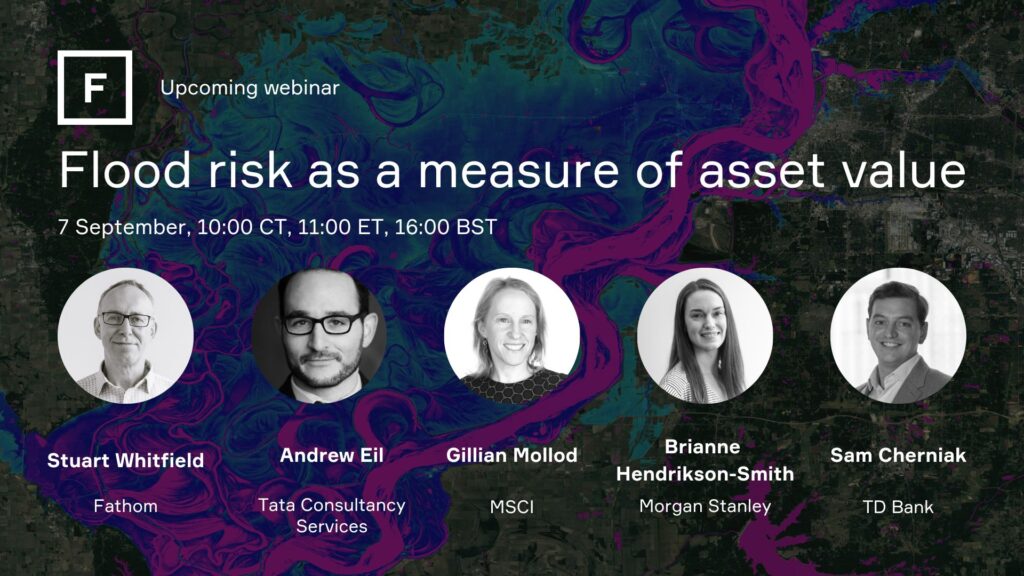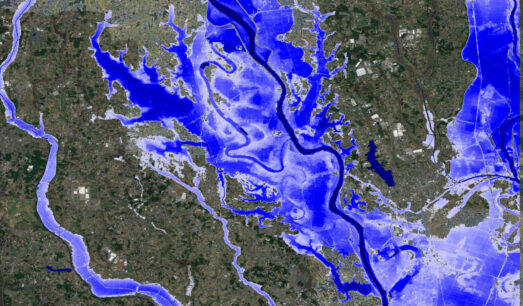Flooding is the costliest and most devastating form of natural disaster. In 2022 alone, the majority of the world’s most costly catastrophes involved flooding, with events hitting China, Pakistan, Australia, and the US.
Whilst extreme events like Harvey once dominated the conversation around unpredicted, financially devastating disasters, they are now just one of many billion-dollar events that plague the nation’s calendar year. Echoing a level of diversity and variation in their weather pattern that has not been present historically.
Failure to adequately price and account for climate-related flood risk threatens the stability of the financial system. It can lead to underpriced insurance, investment and lending risks, asset price volatility, and systemic risk amplification – amongst others.
As investors and managers seek to make informed decisions and avoid potentially unexpected losses, the need to incorporate flood risk data into due diligence, portfolio screening, and valuation processes has become vital.
Starting at a macro level with the impact of climate risk on asset value and progressing to an exploratory discussion on the potential impact of flood risk, this webinar brings together experts from asset management, legal, ESG consulting and data, and fund administration. Our panel of experts will examine the key drivers behind the increased adoption of flood and climate risk intelligence, as well as share perspectives on the potential transformation of flood risk data into a pivotal measure of asset value.
The session will be hosted by Fathom’s CEO, Stuart Whitfield, with expert industry panelists:
- Gillian Mollod, Vice President – MSCI
- Andrew Eil, Head of Climate Risk for North America – Tata Consultancy Services
- Brianne Hendrickson-Smith, Head of Geospatial Analytics – Morgan Stanley
- Sam Cherniak, Business Insights Specialist, ESG Data & Analytics Enablement – TD Bank
Report: Can flood risk be used as a measure of asset value?
This report explores some of the key discussion points from the panel, from the value and uncertainty of climate modeling to the current impact of flood risk on asset pricing.
Panelists
Stuart Whitfield, Fathom
Stuart Whitfeld has accumulated over 20 years of experience working in Chief Executive roles across corporate and commercial law, international software, and climate technology. In his current position at Fathom he leads the commercial strategy and steers the business direction; navigating the various regulatory, disclosure and legal frameworks placed on businesses across financial markets, insurance and engineering. This experience has provided him with a broad understanding of the implementation, utilization and impact of climate datasets, further enriched through first-hand experience working in a business focused on breaking down the black box of climate risk modeling.
Gillian Mollod, MSCI
Gillian Mollod is a member of the physical-risk team within the MSCI Climate Risk Center. In this role, she conducts ESG research and product development focusing on physical risks related to climate change. Previously, Gillian was a geospatial analyst for the Nature Conservancy, a global nonprofit land-conservation organization. She received a master’s degree in sustainability management from Columbia University and a B.A. in environmental science from Barnard College.
Andrew Eil, Tata Consultancy Services
Andrew Eil is currently Head of Climate Risk for North America with Tata Consultancy Services (TCS), where he provides advisory services for banks, insurers, and other financial institutions. With TCS, Andrew specializes in assessing and managing physical and transition risk using emerging techniques such as scenario analysis and stress testing paired with quantitative risk modeling, data analytics, and automation technologies. A climate policy and markets specialist with experience spanning diplomacy, development finance, Andrew has worked on climate issues in government, consulting, and financial institutions since 2008.
Andrew has a Masters in Public Affairs with a focus on international development and climate change from the Princeton School of Public and International Affairs (2009) and a BA in Russian history and literature from Harvard (2002). He holds the GARP certificate in Sustainability and Climate Risk (SCR, 2022) and the Columbia University certificate in sustainable finance (2020). He is a CFA (Certified Financial Analyst) candidate, level II (2014) and SASB Fundamentals of Sustainability Accounting (FSA) candidate, level II (2017). He writes extensively on climate risk and finance in industry publications and press outlets such as Observer and Illuminem.
Brianne Hendrickson-Smith, Morgan Stanley
Brianne is the Head of Geospatial Analytics within the Morgan Stanley Global Sustainability Office where she works to create firm-wide solutions to physical climate risk and biodiversity data challenges. Brianne is a trained hydrometeorologist and former professor of Environmental Science. Brianne’s academic research focused on urban flooding, high resolution rainfall data, and sustainable flooding solutions. She was an author of the NYC Panel on Climate Change 2015 Report and led a City-funded team to investigate flooding risks and mitigation across NYC. Brianne received her bachelors and Master of Engineering degrees from Cornell University and her PhD in Environmental Engineering and Water Resources from Princeton University.
Sam Cherniak
Sam Cherniak is a specialist in the field of climate risk analysis. Currently working at TD Bank, Sam’s role involves building TD’s Climate Data Solution, managing climate data and analytics, including supporting credit risk, scenario analysis and decarbonization strategies.
Previously, as a Consultant with WSP Canada’s Climate Change Advisory Team, Sam led projects related to climate risk and scenario analysis, working closely with clients and executives on projects in power generation, alternative asset management, natural resources, real estate and many more. His work has contributed to understanding the financial implications of different climate risks on various asset types.
With a Master of Applied Sciences in Civil Engineering from the University of Toronto, Sam’s academic background adds depth to his practical experience. His research in drinking water treatment has been recognized within the scientific community


